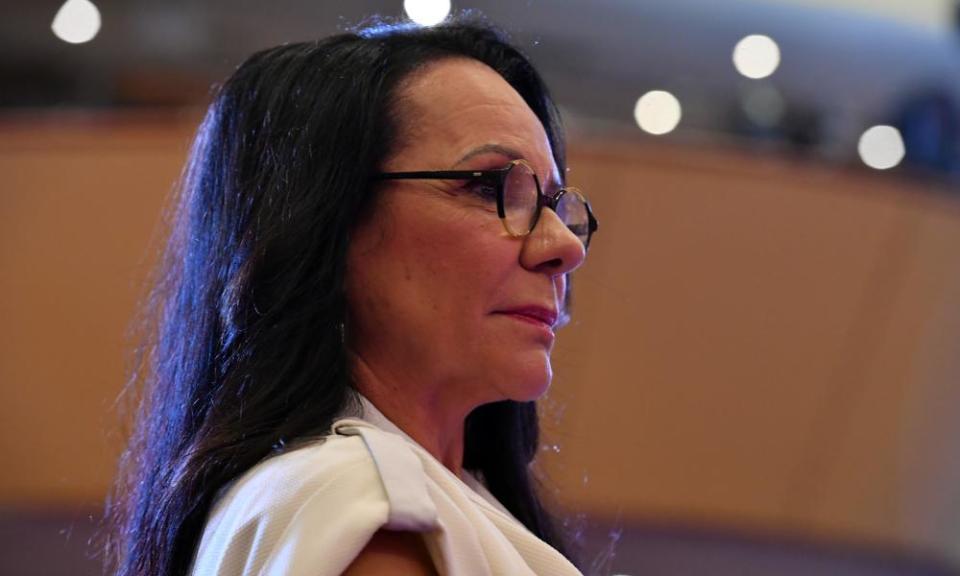Morrison government plan to make more migrants wait for benefits labelled ‘unusual’ and ‘harsh’

The Coalition’s proposal to force migrants to wait four years for family and carers payments has been labelled “unusual” and “harsh” by the federal opposition.
The $671m cost-cutting measure was the largest saving in Tuesday’s budget. It sets up a political fight with Labor which could try and block the changes which will require legislation but won’t deliver substantial savings until 2024-25.
On Wednesday, the prime minister, Scott Morrison, defended the measure as “consistent with decisions we’ve made in the past”.
“This has been a consistent policy the government has for some time, in terms of when people … come to the country [and] get an entitlement to benefits,” Morrison told SBS News.
Related: Migrants forced to wait four years for benefits in Australian budget’s biggest cost-cutting measure
In 2018, the Coalition extended the wait times for most government payments to four years, but carved out family tax benefits, carers and parental payments under a deal with Labor.
The new measure will affect 13,200 future migrants and 45,000 families who arrive in Australia after 1 January 2022, forcing them to wait four years for carer payments and allowances; family tax benefits A and B; parental leave, dad and partner pay.
The shadow social services minister, Linda Burney, said it was an “unusual and unexpected measure in light of the current economic circumstances and the pause on migration”.
“We will examine the detail and consult extensively with the community,” she told Guardian Australia. “What we do know is that migrants have consistently been left behind and neglected by this government, especially during this pandemic, when temporary visa holders were excluded from social security supports.”
Labor MP Julian Hill, a member of parliament’s joint standing committee on migration, said the government promised in its last term it “would not proceed with these measures”.
“But like a zombie, it’s back again,” Hill told Guardian Australia.
“I do understand if future migrants come to Australia and are told there is a four-year wait for most payments that can be reasonable. However, people don’t always plan to have children. To deny payments to children in Australia who will likely become Australians is a harsh proposition. Is that really the kind of society we’re becoming?”
The shadow minister for multicultural affairs, Andrew Giles, said the measure was “concerning”, while Labor MP Alicia Payne accused the government of attacking the most vulnerable.
It’s concerning that the Morrison Government’s Budget is proposing to make migrants wait four years before they can access support.
Through the pandemic we’ve seen how vital it is that we have a safety net that catches us all.— Andrew Giles MP (@andrewjgiles) May 11, 2021
Hiding in the detail - making newly arrived migrants including refugees wait 4 years to access social security payments. This Government never misses an opportunity to attack the most vulnerable. Australia should be better than this. pic.twitter.com/BSCvzW7kXd
— Alicia Payne MP (@AliciaPayneMP) May 11, 2021
The Greens immigration spokesman, Nick McKim, said the measure was “cruel and vindictive”.
Craig Wallace from the ACT Council of Social Service described the savings measure as cruel and unfair.
“For migrants to wait four years is deeply unfair, cruel, unusual and hurtful,” he told reporters in Canberra on Wednesday. “It contradicts the calls that we are seeing from many, including business and international students, for migration to return.”
The Asylum Seeker Resource Centre said the measure would see people “seeking asylum, including women, children and families, remain on temporary visas and excluded from safety nets”.
A departmental fact sheet suggested the measure would not be applied to people who were granted permanent residency or a relevant temporary visa prior to 1 January next year.
Related: It’s time for Fiona the Precariously Employed Bettong’s Annual Budget Reply | First Dog on the Moon
The departments said the measure ensured consistency of wait times for payments and “encourages self-sufficiency for newly arrived residents and improves the sustainability of our welfare system”.
At his traditional post-budget speech to the National Press Club on Wednesday, the treasurer, Josh Frydenberg, denied the measure was punitive.
“We’re not stripping support,” Frydenberg said.
“What we’re seeking to do is to provide the support to those migrants in the same way that we always have. But at the same time when it comes to net overseas migration, ensure that it rebuilds when it is safe to do so.”

 Yahoo Finance
Yahoo Finance 